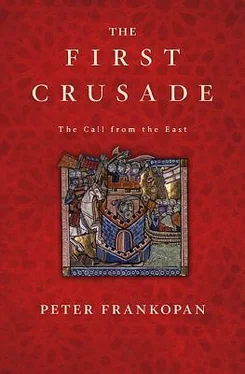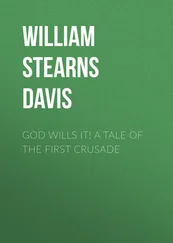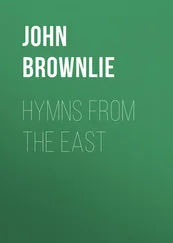The emperor’s initiative was supported by the route taken by Tatikios when he set out from Nicaea to lead the Crusaders east at the end of June 1097. Rather than follow the most direct route across central Anatolia, the Byzantine commander led the massive army as far south as Antioch-in-Pisidia.This was done to maximise the Byzantine military presence across the coast and its hinterland as John Doukas’ campaign got under way. 37The idea was to persuade the Turks to surrender on the grounds that they might be otherwise subjected to a massive assault.
To further impress the Turks, Doukas took with him Çaka’s daughter, who had been taken prisoner at Nicaea. She was brought to prove that the town had fallen, and to show that her father’s power was waning. The fact that she was treated well by the Byzantines clearly demonstrated to Çaka’s faltering followers the benefits of co-operating with the emperor. 38
The Byzantine campaign that began in the summer of 1097 was spectacularly successful. Smyrna, Ephesus and all the towns on the coast were recovered. Philadelphia, Sardis, Laodikeia, Khoma and Lampe were then taken by force or surrendered as Doukas advanced. By the summer of 1098, the coast and the key nodes of the interior were once again back in imperial hands. Byzantine governors were quickly appointed in the locations that had been regained. All those given such positions – men like Kaspax, Hyaleas, Petzeas, Michael Kekaumenos, Eustathios Kamyztes – were part of the new guard that had emerged after the Diogenes conspiracy. They had been obscure figures before the mid-1090s; now they were on the front line of a major fightback in the empire’s eastern provinces. 39
Having caused trouble for the empire for nearly a decade, Çaka himself was finally forced to flee from Smyrna. His fall was dramatic. Arriving in Abydos to take counsel with Kilidj Arslan, he was murdered after a lavish banquet, a sword plunged into his side by the former governor of Nicaea himself. He had become a liability to the Turks of Asia Minor. 40
Such was the revival in Byzantine fortunes that Kilidj Arslan sought out the emperor to come to terms with him. As Anna Komnene put it, ‘these did not fail to meet with success’. Although she does not provide any detail of what was agreed, the fact that ‘peace was restored to the maritime provinces’ is a telling indication that Byzantium’s fortunes in Asia Minor had improved suddenly and decisively. 41
The most important towns and regions in the eastern provinces were back in imperial hands. And while there was still much to be done if the Turks were to be driven out of the subcontinent altogether, the emperor also had to be pragmatic about how much he could realistically recover in one go. Quite apart from finding enough officers he could trust to reimpose his authority, it was essential that the gains of 1097–8 were made permanent. There was of course the prospect that as the Crusaders marched on from Nicaea, the Turks would regroup and subject the town, and the rest of this region, to renewed pressure. This made the agreement with Kilidj Arslan a welcome development for Alexios, allowing him the scope to rebuild the empire’s position in western Asia Minor properly, and to consolidate the improvement in his own position in Byzantium.
The emperor had used the muscle of the Crusader army shrewdly, and benefited from its power both directly – at Nicaea – and indirectly, through the pressure it put on the Turkish presence in western Asia Minor generally. Yet ironically the willingness of Kilidj Arslan to reach a settlement with Alexios and sacrifice a substantial swathe of territory had negative consequences for the Crusaders who now drew the full focus of Turkish attention.
After setting off from Nicaea, the western army divided into two, with Bohemond, Tancred and Robert of Normandy in one group; Robert of Flanders, Raymond of Toulouse, Hugh of Vermandois and the bishop of Le Puy in another. There were practical reasons for splitting the force. Although supplies had so far been ensured by the emperor, the sheer size of the army as it started to move meant that keeping it provisioned was extremely challenging, especially in the baking heat of the central Anatolian plateau in the height of the summer months.
At the start of July, just a few days into the march, Bohemond noticed Turkish scouts shadowing his lead party, as it approached the ruined town of Dorylaion. Although he immediately sent word to the main contingent, he was ambushed by an enormous Turkish force under the command of Kilidj Arslan that was on its way to tackle the western knights. Shock and fear spread through the Crusaders as the enemy bore down on them ‘howling like wolves and furiously shooting a cloud of arrows’. 42
The noise made by the Turks was terrifying. ‘They began to gabble and shout, saying in their language some devilish word which I do not understand’, wrote one eyewitness. They were likely to have been shouting ‘ Allahu akbar! ’ – ‘God is great!’ Yet it was not just the sounds that frightened the westerners. The attack was so ferocious that priests on the expedition prayed to God through streaming tears, so certain were they of their imminent doom. 43‘What shall I say next?’ recorded another westerner. ‘We were all indeed huddled together like sheep in a fold, trembling and frightened, surrounded on all sides by enemies so that we could not turn in any direction. It was clear to us that this happened because of our sins ... By now we had no hope of surviving.’ 44
Surrounded by mounted archers, Bohemond’s men were pushed back towards the nearby river. This turned out to be fortunate: for knights wearing metal armour and fighting with heavy swords, access to drinking water could make the difference between life and death.
In addition, the Turkish horses found the marshy land hard going.
Thus falling back to more advantageous terrain, the Crusaders held their line in spite of heavy casualties and fought a fierce rearguard action until reinforcements arrived. Bohemond’s tactics and his ability to maintain discipline explains why the Norman leader’s star rose steadily amongst the rank and file of the expedition. He urged his men to hold their ground, leading by example in the first major open encounter with the enemy. The Crusaders maintained their faith: ‘we passed a secret message along our line, praising God and saying, “Stand fast all together, trusting in Christ and in the victory of the Holy Cross. Today, please God, you will all gain much booty!”’ 45It seems it was not just faith that sustained the knights.
With the arrival of detachments from the contingents of Godfrey of Bouillon, Raymond of Toulouse and Hugh of Vermandois, the balance began to shift in the westerners’ favour. The appearance of Adhemar of Le Puy proved decisive, with the bishop ransacking the Turkish camp, setting it on fire and then attacking the enemy from the rear. This spread confusion amongst the attacking force, which now began to disperse. A battle that had threatened to bring the Crusade to an ignominious and early end turned into a spectacular victory. No wonder some commentators regarded it as yet another sign of God’s grace and protection: ‘It was a great miracle of God that during the next and the third days the Turks did not cease to flee, although no one, unless God, followed them further. Gladdened by such a victory, we all gave thanks to God. He had willed that our journey should not be brought entirely to naught, but that it should be prospered more gloriously than usual for the sake of that Christianity which was His own.’ 46
Nevertheless, the Turks had made a startling impression on the Crusaders; their skill on horseback, their impressive use of the bow, and their military ability earned them western admiration. Some Crusaders regretted that they were not Christians: ‘[The Turks] have a saying that they are of common stock with the Franks, and that no men, except the Franks and themselves are naturally born to be knights. This is true and nobody can deny it, that if only they had stood firm in the faith of Christ and Christendom ... you could not find stronger or braver or more skilful soldiers; and yet by God’s grace they were defeated by our men.’ 47Despite the knights’ grudging admiration for their enemy – Kilidj Arslan was referred to as ‘a very noble man, but nevertheless a heathen’ – the threat posed by the Turks to the expedition outweighed such niceties. 48As Alexios had stressed in Constantinople, the Turks were formidable fighters; unless strict discipline was maintained in battle, the Crusaders would be massacred. 49
Читать дальше











